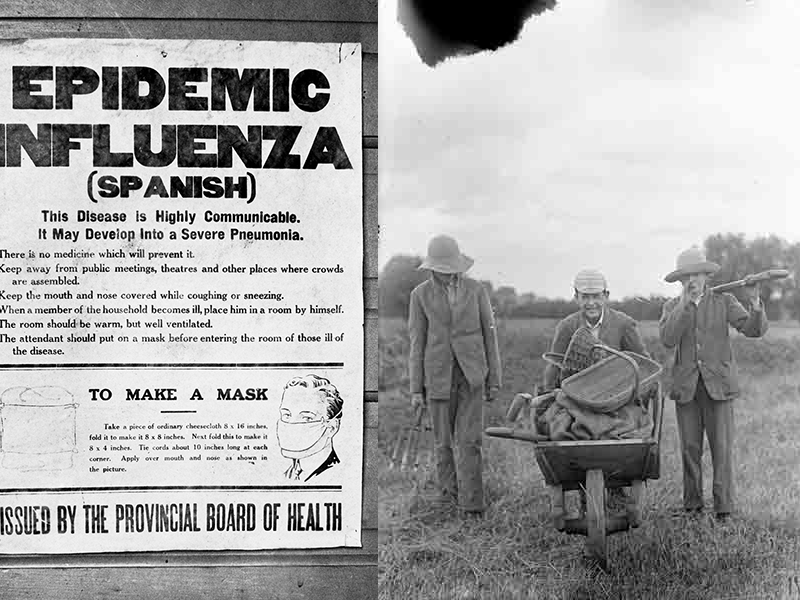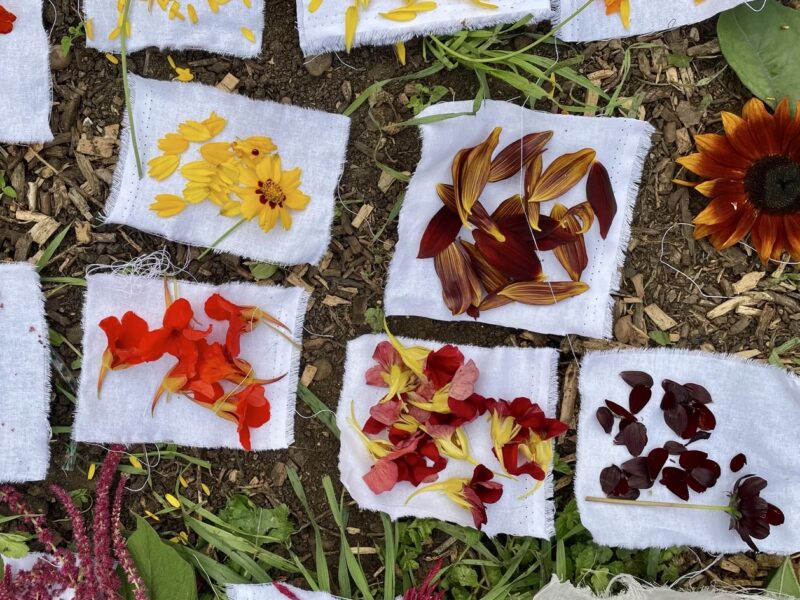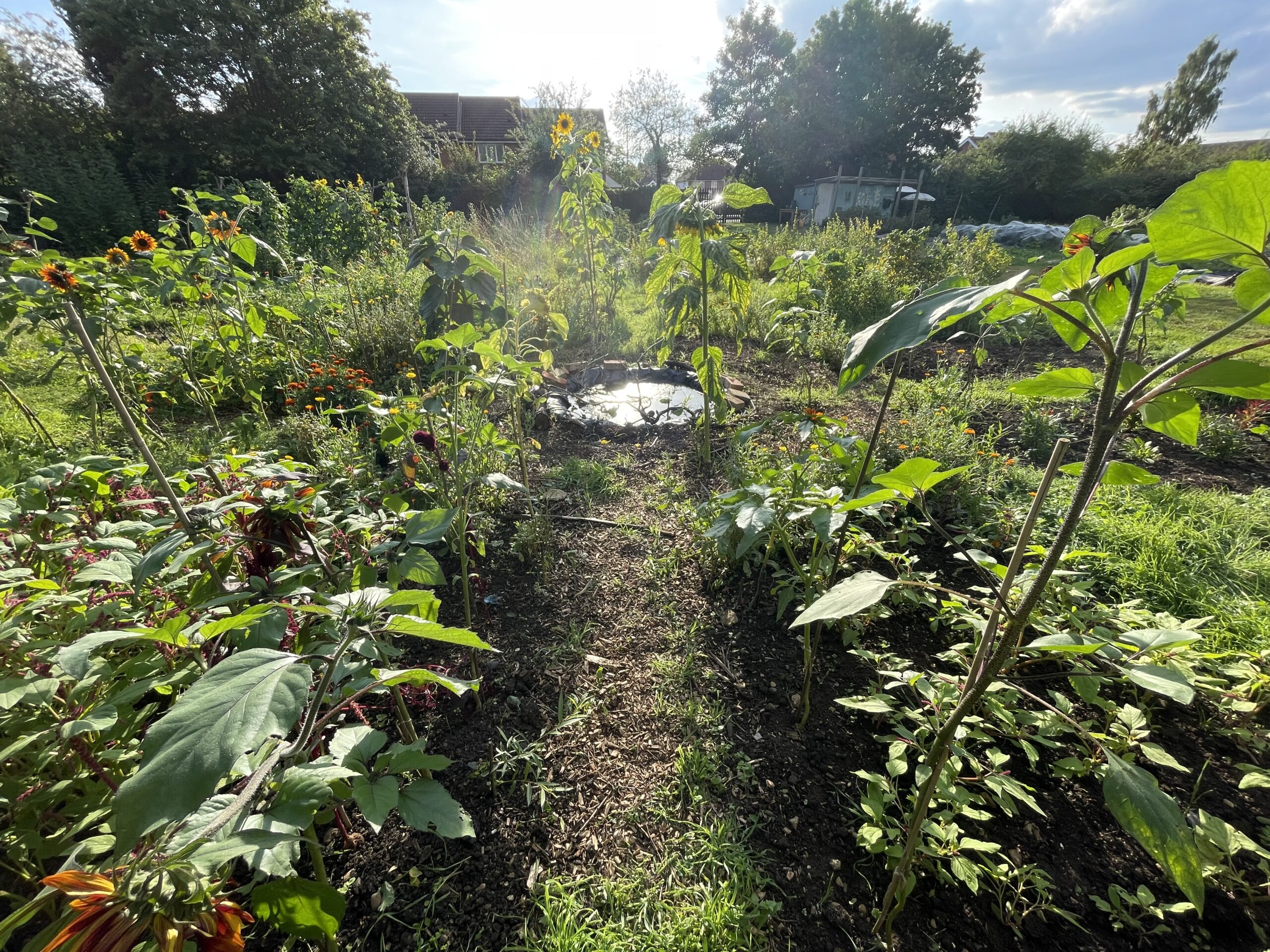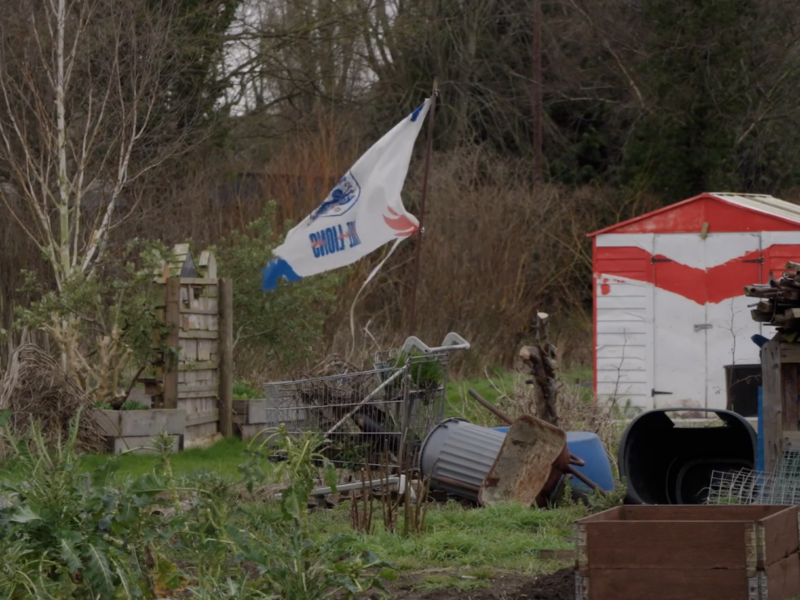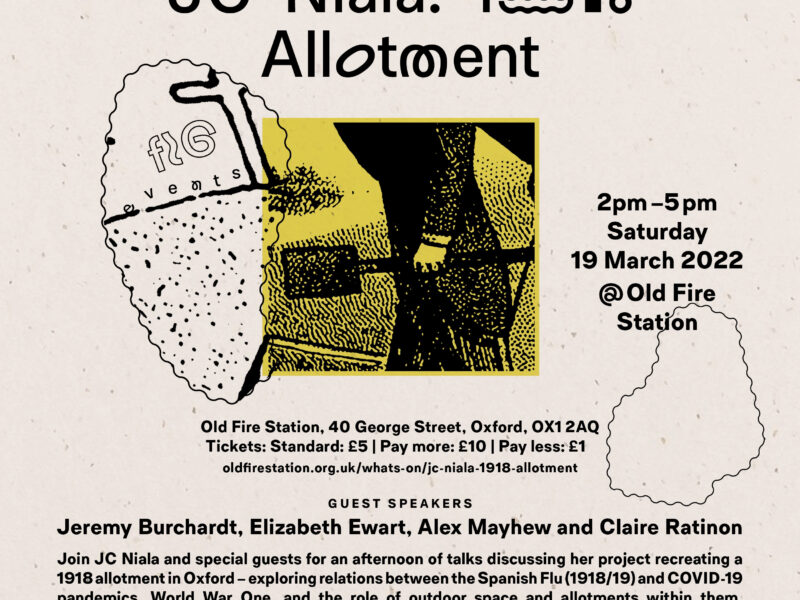Journal — March 2022
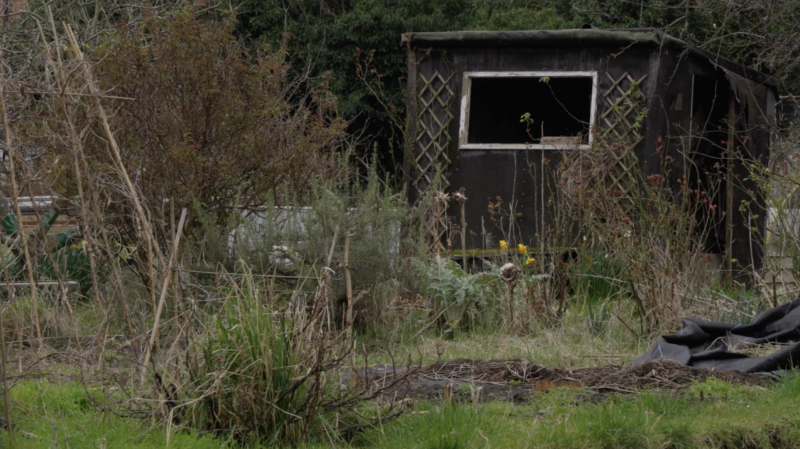
On a freezing yet strikingly beautiful cusp of spring morning, I met with Sam from FIG and Benjamin a filmmaker at the 1918 Allotment. The plan was to film me reading some poems from Portal: 1918 Allotment. It was early morning and so there were not many people around. Initially the sun was dancing in front of and then darting behind clouds before settling down to share a glorious light. When Benjamin found the right frame, Sam pointed out that looking through the viewfinder it could have been a scene from 1918 or 2022. There is a timelessness that allotments manage to contain.
Allotments at this time of year are a curious mix of plants coming to life and some insects (like the ladybirds on the plot) still overwintering. It is at once an engaging and fragile transition. With a sense of life bursting, it can be easy to forget that the life has been fuelled by other things breaking down. Compost heaps on allotment sites make use of this process of decomposition. It still surprises me how much heat a healthy compost heap can generate. It seems to be that life and death are intimately intertwined – it is the form they inhabit that changes shape.
We were more aware of this intertwining than usual because one of the ‘old boys’ on the site had taken his growing to the other side. I wrote last week about the vulnerability of allotment sites and the ‘old boys’ who I have been privileged to grow alongside have been key to their survival. ‘Old boys’ (which is not an offensive term) are in the main white, working-class men who have been cultivating on allotment sites in a more or less unbroken chain since before the First World War. Each of them is an embodied archive. When one of them passes, it is a loss not just to their loved ones but also to wider allotment communities.
I read the poems from my book with feelings of excitement that it is finally in the world, but also with a sense of sadness from the loss that these transitions bring. On every allotment site I have cultivated – I have known that I am truly embedded (in every sense of the word) when an ‘old boy’ as told me off or pointed out something that I am doing that is wrong. It was generally the way in which they expressed their care.
My book being out in the world also marks the closing of this phase of the 1918 Allotment. There will be two final blog posts updating you on the book’s launch and sharing details from it afterwards. I remain grateful to all of you who have taken the time to engage with my work and write to me to share your memories and thoughts. If there is one thing that I continue to learn the deeper meanings of it is that a certain magic does occur when we put our hands in the earth. As it turns out this is more than just a feeling.
Mycobacterium vaccae, which is found in the soil, is currently undergoing intense study. Early results that it may stimulate the release of serotonin and as such works as an effective anti-depressant. It has also been found to increase resilience to stressors. It appears to have both anti-inflammatory effects and immune system modulating effects. Or in other words – getting your hands into the earth may make you healthier, happier and more able to cope with whatever life throws at you. I suspect that if I were to raise these findings with the ‘old boys’, I know they would say I didn’t need to go further than an allotment site to find out that they are true.
